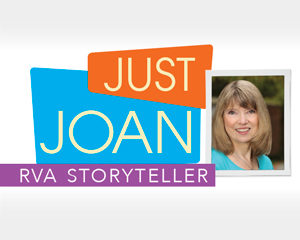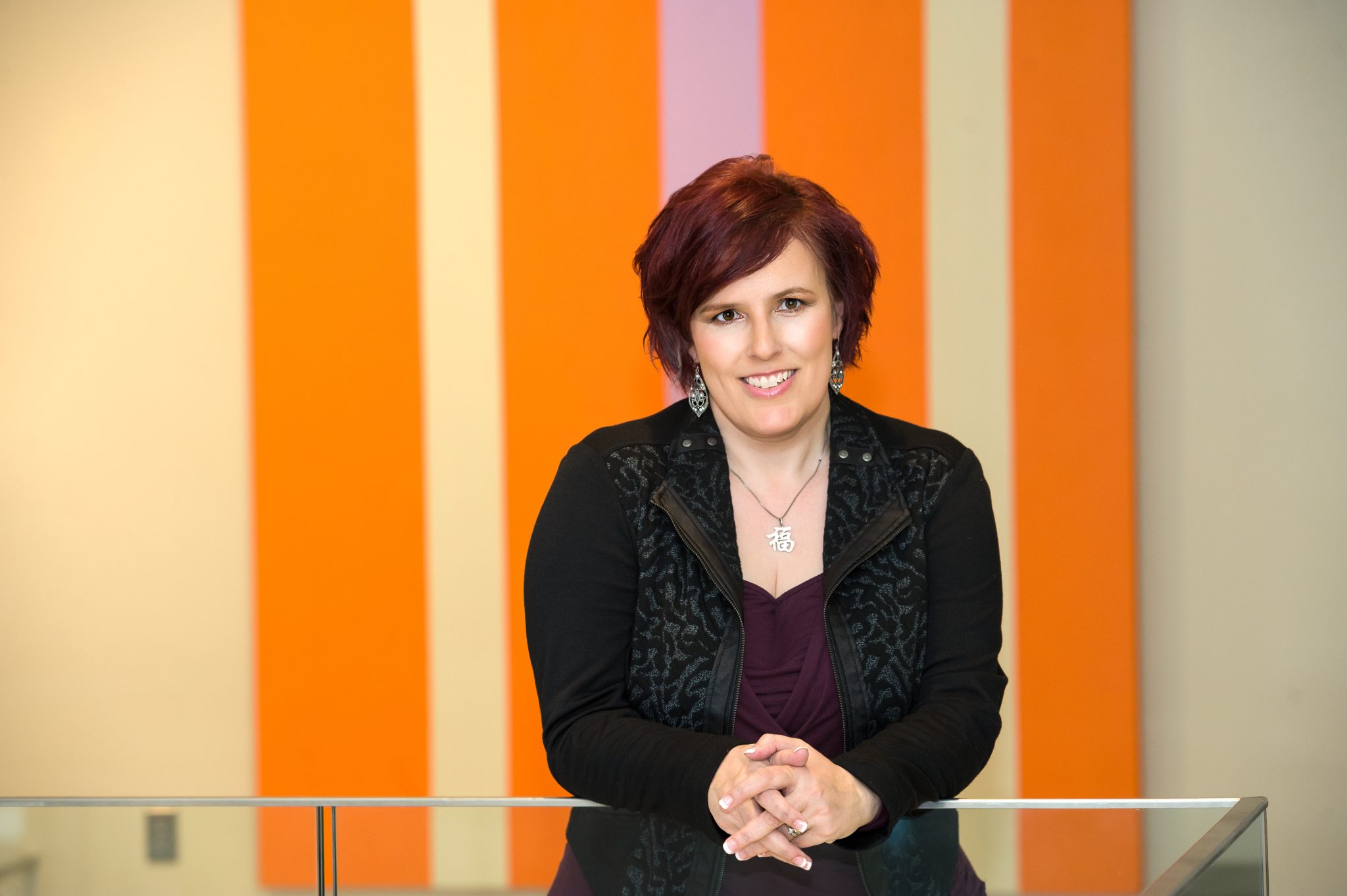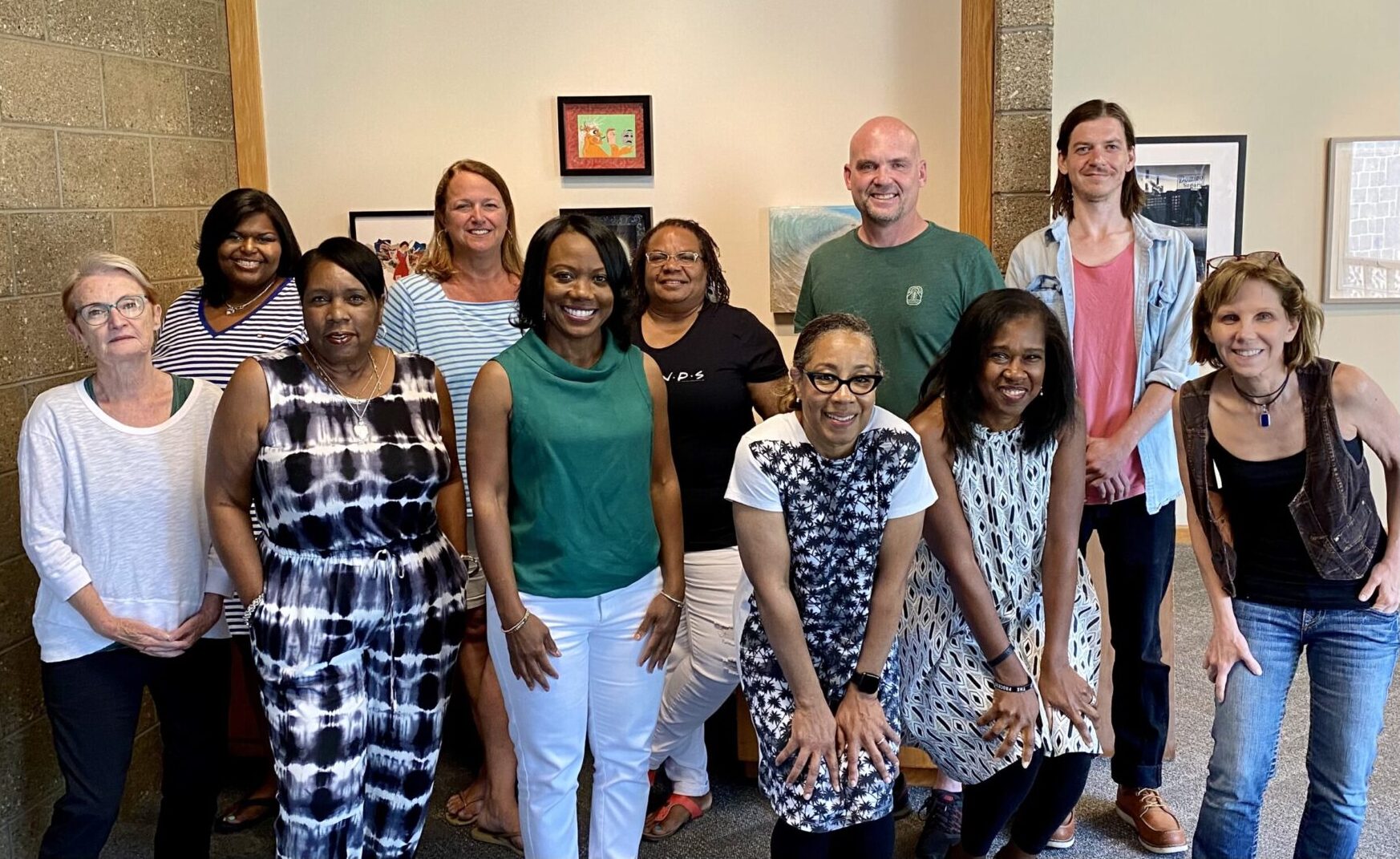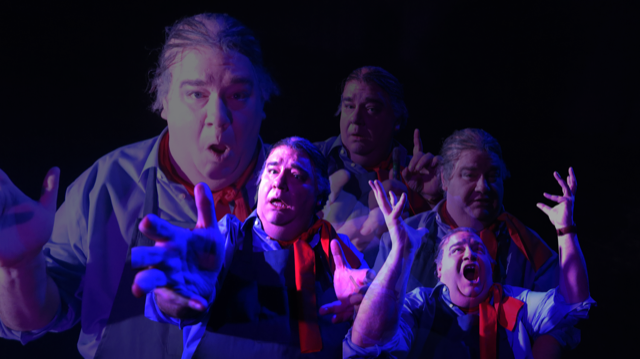Jeanine Guidry, PhD, shared her thoughts on talking to family and friends about COVID-19 vaccines. Excerpts of a Q&A with VCU News are included in this story.
 After a year of being isolated from friends and family because of COVID-19, wouldn’t it be wonderful if you could once again hug your grandmother or celebrate holidays together?
After a year of being isolated from friends and family because of COVID-19, wouldn’t it be wonderful if you could once again hug your grandmother or celebrate holidays together?
These joys in life and many more are possible if we can achieve herd immunity, defined as 70 to 85 percent of the U. S. population having been inoculated. And, it doesn’t matter which vaccine — Pfizer, Moderna, or Johnson & Johnson. According to Jeanine Guidry, PhD, what matters is getting as many people as possible vaccinated as quickly as possible.
Guidry, an assistant professor at VCU in the Robertson School of Media and Culture and director of the Media+Health Lab, acknowledges there are people who are hesitant about getting the vaccine and some of them may be family members. If they are hesitant, Guidry says one of the most important things to find out is why.
Guidry is a well-respected voice regarding the use of visual social media and mobile technology in health, risk, and crisis communication. She regularly presents her work at national and international conferences that include the American Public Health Association and the European Association for Communication in Healthcare Conference.
“The COVID-19 vaccine is a miracle. It was developed in less than a year,” says Guidry. “So what are they concerned about? Is it because they are concerned about the speed of the vaccine development? Is it a concern about the safety of the vaccine? Are there some more serious pieces of misinformation they may have encountered and are not sure about,” she says.
Guidry believes showing empathy and sharing your experience with the vaccine can help show people that it is okay. “It’s important to acknowledge that being concerned is valid. We have lived in an emergency situation for the past year. There has been great uncertainty in much of our collective lives,” she says.
The vaccines are our ticket, she says. “It’s not an instantaneous ticket. But, it is the way out of the pandemic.”
According to Guidry, it’s always better to talk to someone privately and in-person about the vaccine, rather than try to communicate your thoughts through social media or over the phone. “You don’t want people to feel defensive, especially if someone says, ‘I don’t believe this vaccine is going to work.’ Publicly posting on their feed — you are wrong — is not something that will help,” Guidry says.
How to Address Misinformation
There are many misconceptions flying around related to the COVID-19 vaccines. It can help if you are able to clarify misinformation, starting with the length of time it took to develop the vaccine.
“That’s a miracle, but it doesn’t mean corners were cut; safety was not compromised,” Guidry says. “Research on other coronaviruses (because there are many) was already taking place, and vaccine developers were able to build on that. In addition, governments – the U.S. and others – were willing to invest in multiple companies and vaccine platforms at once, and this increased the odds of having a vaccine, or vaccines, available much quicker. Those strategies paid off tremendously, and that is something you can explain.”
If someone has a concern that the COVID-19 vaccine changes your DNA, you can explain that “several of the vaccine use mRNA, which may sound like DNA, but is something different,” Guidry says. “Again, that is something you can explain to people.”
Another piece of misinformation that is highly related to the vaccine, but it is not specifically about the vaccine is the myth that “that COVID-19 is not a serious disease, or worse, it is a hoax,” Guidry says. “If you don’t believe COVID-19 is serious and you believe you are not likely to get it, you’re much less likely to get the vaccine no matter how good it may work. The answer to that is we have now lost more than 500,000 lives to COVID-19 in the U.S. alone. It is a very serious disease for far too many people.”
While social media can be a great tool for communicating health-related information, “it can also be a tremendous tool to spread misinformation,” Guidry says. “Once information is shared, especially online, there’s no taking it back. So, the first thing I think we can all do is take a pause before we share anything, particularly something related to COVID-19 treatment or prevention, such as the vaccine.”
It’s important to get your information from trusted, reliable sources such as the Centers for Disease Control, the World Health Organization or the Virginia Department of Health.
“They should be go-to sources for everyone. It doesn’t mean their information is perfect, but it does mean if information changes and they have to change recommendations, they will do that as soon as they are able to,” Guidry says. “Those are among the most reliable sources.”
Vaccination Testimonials are Important
After living through a year of the pandemic, everyone is stressed and uncertain about the future. And, that’s quite understandable, Guidry says. That’s why sharing personal stories about getting the vaccine is so critical.
“Telling our own story … and being grateful that I an not just protecting myself, I am protecting those people around me,” Guidry says. “I am protecting the people who might not be able to get the vaccine. I am protecting part of our society as well. Being able to tell stories like, I am getting this vaccine because I want us to be able to celebrate holidays together this year. I am getting this vaccine because I want to be at my daughter’s, son’s, niece’s or nephew’s graduation. I am getting this vaccine because I want to hug grandma. I am getting this vaccine because I want to connect in person again.”
The story of “why does this matter to you” can really communicate “faith and hope,” she adds. “We have had a sense of hopelessness and helplessness in the midst of COVID. Psychologically that is one of the hardest things to fight. But now, we are not powerless, we are not helpless. We have vaccines they are 90 to 95 percent effective for Pfizer and Moderna. That is another thing that can fight misinformation, this projection of hope. This is what is going to help us.”
More about Jeanine Guidry: Guidry’s research agenda focuses on the use of visual social media and mobile technology in health, risk, and crisis communication and message design, and her dissertation research studied effective message design development for the future zika vaccine. She regularly presents her work at national and international conferences, such as the International Communications Association (ICA) conference, the DC Health Communication (DCHC) conference, the American Public Health Association (APHA) conference, the EUPRERA (European PR) conference, AEJMC, IPRRC, and the European Association for Communication in Healthcare (EACH) Conference. In addition, her work has been published in Public Relations Review, Vaccine, the Journal of Social Marketing, Health Communication, PRism, and Communication Teacher.
Jeanine received her PhD in social and behavioral sciences from the department of health behavior and policy in the school of medicine at VCU, her MS in health sciences from Maastricht University in the Netherlands, and her MPS in strategic public relations from George Washington University.







